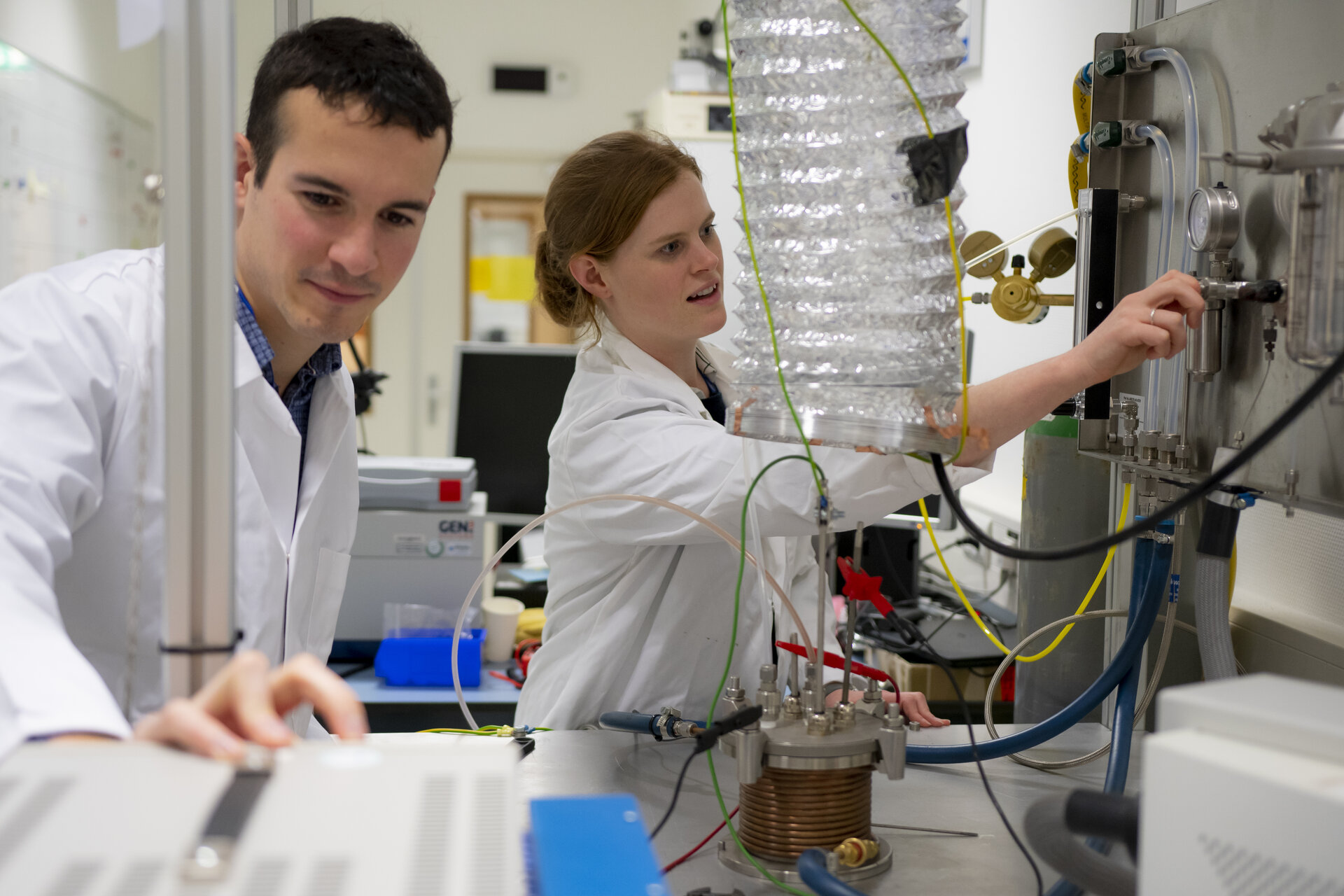Praktičnousposabljanje
Delovna praksa
Praktično usposabljanje študentov je reden del študijskega programa, ki nadgradi teoretične študijske vsebine. Študentom omogoči prenos pridobljenega znanja in teoretične usposobljenosti v prakso. Na ta način študentje spoznajo, katera znanja so pri študiju temeljna, dobijo vpogled v realne delovne razmere in pogoje ter delovne naloge, ki jih bodo opravljali na področju, za katerega se specializirajo oz. se vanj usmerjajo. Študentje imajo tako možnost spoznati možne poklicne poti ter oceniti svoje dejanske in potrebne kompetence ter veščine znotraj področja, ki jih zanima.
Študenti visokošolskega strokovnega študijskega programa Aplikativna elektrotehnika opravljajo v začetku 6. semestra praktično usposabljanje v obsegu 3 mesecev. Praktično usposabljanje poteka pod vodstvom fakultetnih mentorjev in mentorjev v izbranih podjetjih s pretežno elektrotehničnimi področji dela, ali v podjetjih, ki zaradi infrastrukturnih dejavnosti potrebujejo elektrotehnične kadre.
Kateri so najpomembnejši cilji praktičnega usposabljanja?
- Pridobivanje praktičnih izkušenj ter povezovanje izobraževanja in dela,
- nadgrajevanje pridobljenih znanj ter prenos teoretičnega znanja v prakso,
- usposabljanje in razvoj specifičnih spretnosti ter kompetenc poklica,
- spoznavanje novih učnih situacij in tehnoloških procesov,
- spoznavanje novih delovnih sredstev, naprav, pripomočkov in materialov,
- učenje sodelovanja in timskega dela ter komunikacije in nastopa pred strankami,
- razvijanje odgovornosti za delo, za kakovost, potrebno v poklicnem delu, za upoštevanje predpisov iz varnosti in zdravja pri delu ter varovanja okolja,
- omogočiti zaposljivost diplomantov,
- obogatiti in nadgraditi kakovost študija
- povezovanje fakultete s širšim družbenim okoljem, raziskovalnimi institucijami, gospodarskimi družbami ter predstavniki negospodarstva doma in v tujini.
Potek aktivnosti in roki
Prvi korak pri praktičnem usposabljanju je, da si študent poišče mentorja na fakulteti. Nato si sam ali s pomočjo koordinatorja poišče podjetje, v katerem se bo praktično usposabljal. Podjetje študentu dodeli mentorja, ki ima vsaj VII. stopnjo izobrazbe in izkušnje z ustreznega področja elektrotehnike. Podjetje svojo pripravljenost za sodelovanje potrdi s prijavnico.
Rok: 1. februar
Prijava na praktično usposabljanje poteka preko študijskega programa STUDIS. V spletni obrazec PRAKSA študent izpolni vse manjkajoče podatke, obrazec natisne in potrjenega (podpisanega in žigosanega) s strani podjetja dostavi koordinatorju praktičnega usposabljanja. Na podlagi potrjenega potrdila o sprejemu na obvezno študijsko prakso koordinator pripravi pogodbo o medsebojnih obveznostih študenta, podjetja in UL FE.
Rok: 15. februar oz. dva tedna pred pričetkom praktičnega usposabljanja
Praktično usposabljanje se pravilom pričenja med 1. marcem in 31. majem. Za preložitev začetka praktičnega usposabljanja (po 1. maju) je potrebno soglasje študijske komisije. Ob zaključku praktičnega usposabljanja izdela študent zaključno poročilo po navodilih.
Po končanem praktičnem usposabljanju študent dostavi koordinatorju ocenjevalni list, ki ga predhodno izpolni mentor v podjetju, odgovorna oseba v podjetju pa tudi podpiše in žigosa. Študent izdela zaključno poročilo in ga po predpisanih navodilih odda preko STUDIS-a najkasneje 15 dni po končanem praktičnem usposabljanju. Na osnovi zaključnega poročila in ocenjevalnega lista mentor oceni uspešnost praktičnega usposabljanja. Študent, ki ne odda končne oblike poročila o praktičnem usposabljanju v roku treh mesecev po zaključku praktičnega usposabljanja, mora ponovno opravljati praktično usposabljanje.
Rok: 3. mesece po zaključku praktičnega usposabljanja (skrajni rok)
Naloge sodelujočih
Naloge študenta
Vsak študent si izbere praktično usposabljanje glede na možnosti in lasten interes. V pomoč mu je lahko koordinator praktičnega usposabljanja ali mentor na fakulteti.
Naloge študenta so:
- izbira vsebine praktičnega usposabljanja, ki ustreza njegovemu interesu in izbira zunanje organizacije, kjer bo opravljal praktično usposabljanje,
- izbira mentorja na fakulteti,
- izvedba prakse v zahtevanem obsegu,
- pri delu upoštevanje navodil mentorja iz podjetja, fakultetnega mentorja in koordinatorja prakse,
- odgovorno opravljanje nalog, ki so mu zaupane,
- oddaja vse potrebne dokumentacije o svojem delu fakultetnemu mentorju v dogovorjenem roku ter vodenje ustrezne dokumentacije o poteku prakse (dnevnik prakse),
- upoštevanje predpisov o varstvu pri delu in uporaba ustreznih zaščitnih sredstev,
- varovanje morebitnih poslovnih skrivnosti izvajalca praktičnega usposabljanja, s katerimi se seznani med opravljanjem prakse,
- priprava končnega poročila.
Naloge fakultetnega mentorja
- Skupaj z mentorjem v podjetju usklajuje izvedbo programa,
- občasno nadzira delo študenta,
- pregleda zaključno poročilo in oceni študenta.
Naloge mentorja v podjetju
- Seznani študenta s podjetjem in njegovim področjem dela,
- seznani študenta s pravicami in dolžnostmi v času usposabljanja,
- skrbi za ustrezne delovne pogoje študenta (npr. prehrana, varstvo pri delu),
- skrbi za izvajanje usposabljanja v skladu z dogovorjenim programom (dodeljuje naloge, preverja rezultate dela),
- vodi, usmerja in svetuje študentu v času praktičnega usposabljanja,
- sodeluje s fakultetnim mentorjem,
- izda oceno o praktičnem usposabljanju.
Naloge koordinatorja
- Sprejema prijave študentov za praktično usposabljanje,
- izbira primerna podjetja, ki so pripravljena sprejeti študente na praktično usposabljanje,
- pripravlja pogodbe o usposabljanju med podjetji, študenti in FE,
- nadzira izpolnjevanje pogodbenih obveznosti,
- skrbi za stike s podjetji, v katerih se študentje usposabljajo,
- pregleda poročila o praktičnem usposabljanju.
